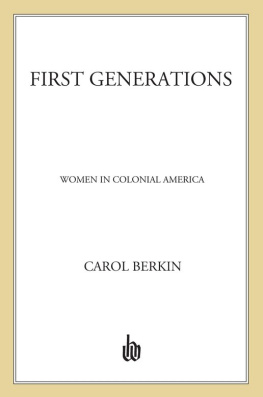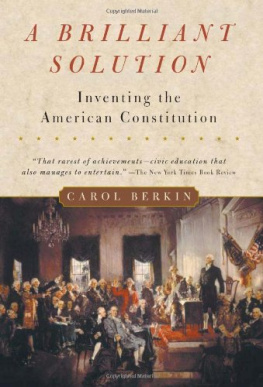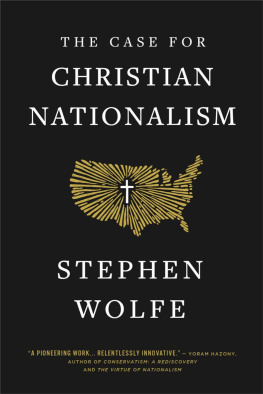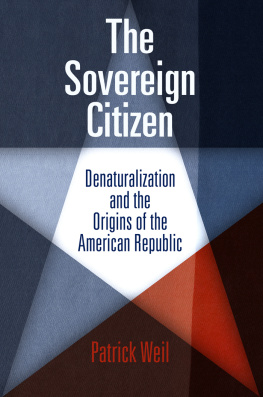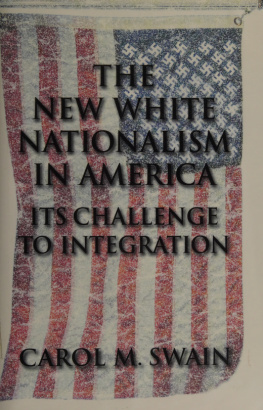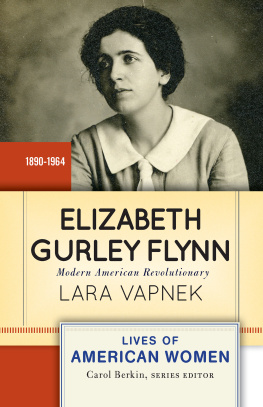Carol Berkin - A Sovereign People: The Crises of the 1790s and the Birth of American Nationalism
Here you can read online Carol Berkin - A Sovereign People: The Crises of the 1790s and the Birth of American Nationalism full text of the book (entire story) in english for free. Download pdf and epub, get meaning, cover and reviews about this ebook. year: 2017, publisher: Basic Books, genre: Politics. Description of the work, (preface) as well as reviews are available. Best literature library LitArk.com created for fans of good reading and offers a wide selection of genres:
Romance novel
Science fiction
Adventure
Detective
Science
History
Home and family
Prose
Art
Politics
Computer
Non-fiction
Religion
Business
Children
Humor
Choose a favorite category and find really read worthwhile books. Enjoy immersion in the world of imagination, feel the emotions of the characters or learn something new for yourself, make an fascinating discovery.

- Book:A Sovereign People: The Crises of the 1790s and the Birth of American Nationalism
- Author:
- Publisher:Basic Books
- Genre:
- Year:2017
- Rating:3 / 5
- Favourites:Add to favourites
- Your mark:
- 60
- 1
- 2
- 3
- 4
- 5
A Sovereign People: The Crises of the 1790s and the Birth of American Nationalism: summary, description and annotation
We offer to read an annotation, description, summary or preface (depends on what the author of the book "A Sovereign People: The Crises of the 1790s and the Birth of American Nationalism" wrote himself). If you haven't found the necessary information about the book — write in the comments, we will try to find it.
A Sovereign People: The Crises of the 1790s and the Birth of American Nationalism — read online for free the complete book (whole text) full work
Below is the text of the book, divided by pages. System saving the place of the last page read, allows you to conveniently read the book "A Sovereign People: The Crises of the 1790s and the Birth of American Nationalism" online for free, without having to search again every time where you left off. Put a bookmark, and you can go to the page where you finished reading at any time.
Font size:
Interval:
Bookmark:
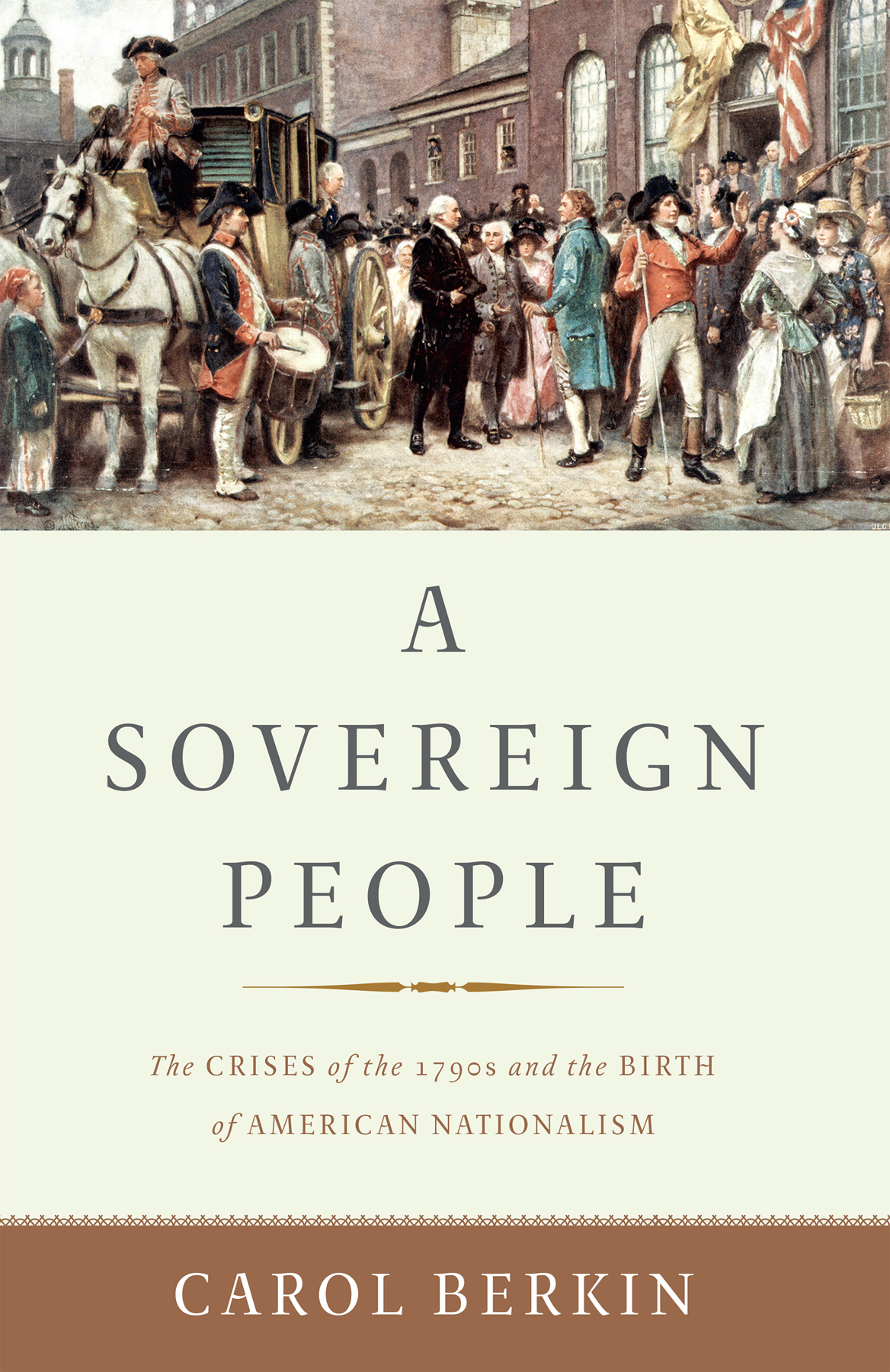
Copyright 2017 by Carol Berkin
Published by Basic Books, an imprint of Perseus Books, LLC, a subsidiary of Hachette Book Group, Inc.
All rights reserved. No part of this book may be reproduced in any manner whatsoever without written permission except in the case of brief quotations embodied in critical articles and reviews. For information, address Basic Books, 1290 Avenue of the Americas, New York, NY 10104.
Books published by Basic Books are available at special discounts for bulk purchases in the United States by corporations, institutions, and other organizations. For more information, please contact the Special Markets Department at Perseus Books, 2300 Chestnut Street, Suite 200, Philadelphia, PA 19103, or call (800) 810-4145, ext. 5000, or e-mail special.markets@perseusbooks.com.
Designed by Amy Quinn
Library of Congress Cataloging-in-Publication Data
Names: Berkin, Carol, author.
Title: A sovereign people : the crises of the 1790s and the birth of American nationalism / Carol Berkin.
Description: New York : Basic Books, [2017] | Includes bibliographical references and index.
Identifiers: LCCN 2016047872 (print) | LCCN 2016049490 (ebook) | ISBN 9780465060887 (hardcover) | ISBN 9780465094936 (ebook)
Subjects: LCSH: United StatesHistory17831815. | NationalismUnited StatesHistory. | Genet, Edmond Charles, 17631834. | Whiskey Rebellion, Pa., 1794. | XYZ Affair, 17971798. | Alien and Sedition laws, 1798. | Kentucky and Virginia resolutions of 1798.
Classification: LCC E310 .B345 2017 (print) | LCC E310 (ebook) | DDC 973.3dc23
LC record available at https://lccn.loc.gov/2016047872
E3-20170321-JV-NF
Carol Berkins path-breaking A Sovereign People highlights the way that high Federalists won the hearts and minds not only of the rich and powerful, but of ordinary people from all walks of life, leading them to look to the nation and the Constitution rather than to the states for the source of their identity. Her astute analysis of four foreign and domestic crises brings the critical decade of the 1790s to life, capturing the tensions, the hopes, and the fears of the people charged with creating the basis for a new and as yet untried nation. A tour de force.
Sheila Skemp, Clare Leslie Marquette Professor Emerita of History, University of Mississippi
Carol Berkin has written a convincing reinterpretation of the four major crises of the 1790s. This essential book shows that the Whiskey Rebellion, Genet Affair, XYZ Affair, and Alien & Sedition Acts actually helped bind the nation together, increasing support for the government, a sense of American identity, and respect for the Constitution. Everyone interested in the history of this vital decade needs to have her book.
James H. Broussard, director, Lebanon Valley College Center for Political History
With a masterful command of a complex history, Berkin uses her clear and concise style to help us rethink the founding of the United States. With powerful logic, and with an important timeliness, Berkin reveals how Americans discovered a shared national identity, and learned to love the new Constitutiondespite often disagreeing with each other. A brilliant and important book.
Doug Bradburn, founding director, The Fred W. Smith National Library for the Study of George Washington at Mount Vernon
The Bill of Rights: The Fight to Secure Americas Liberties
Wondrous Beauty: The Life and Adventures of Elizabeth Patterson Bonaparte
Civil War Wives: The Lives and Times of Angelina Grimke Weld, Varina Howell Davis, and Julia Dent Grant
Revolutionary Mothers: Women in the Struggle for Americas Independence
A Brilliant Solution: Inventing the American Constitution
First Generations: Women in Colonial America
Jonathan Sewall: Odyssey of an American Loyalist
To my
granddaughter,
Noa Grey Berkin
W HEN PRESIDENT GEORGE Washington delivered his first inaugural address on April 30, 1789, he confessed that as a man of inferior endowments from nature who was unpractised in the duties of civil administration, he feared his inadequacy to handle the challenges that lay ahead for the new federal government. Washington, however, was not the only man who felt the weight of those challenges. Along with the president, there were men who believed that the survival of the Republic rested on the Constitution and its governmentand that the success of both depended upon them. The anxiety they shared with the president can be seen in the debates in Congress, in cabinet meetings, in newspaper articles, and in their private correspondence.
Like Washington, these men called themselves Federalists, but in spirit they were nationalists. They had written the Constitution or supported its ratification from a firm conviction that a strong government representing all the people of the Republic was the surest path to economic growth and prosperity, to civil law and order, and to winning the respect and recognition from foreign nations necessary to insure Americas continued independence. They had met with fierce opposition at the ratifying conventions by men equally certain that the best way to protect the liberties and rights won in the Revolution was to keep power in the hands of the state governments. But the Federalists had won that hard-fought battle. And now, in 1789, the first president and the first Congress were preparing for the battles to come.
The stakes were high. If the federal government failed, and these men were well aware that it might, it would be their failure; if it succeeded, they hoped to be credited with that success. In short, Federalists tended to see themselves as the exclusive guardians of the federal experiment, the Constitutions true representatives and agentsand its only legitimate interpreters. They viewed anyone who opposed them, anyone who criticized them publicly or attacked their policies, as an enemy of the Constitution, of the federal government, and of the Republic.
There was oppositionin newspapers, in congressional debates, in memorials and petitions sent to the presidents, in outbreaks of open resistance and in challenges to the sovereignty of the United States by foreign powers. The laws passed by Congress and the policies set by the president were ignored by foreign representatives and resisted by citizens. Their policies were undermined by state officials protective of their own authority. And the Federalists in office were relentlessly accused of secretly plotting to destroy the Republic and create a monarchy in America. Federalists believed that this opposition would undermine their efforts to win the loyalty of the ordinary citizens to the Constitution and its government. Without the peoples support, the Constitution was only a piece of paper.
Looking back from the twenty-first century, it is often difficult to imagine that the acceptance of the Constitution was ever contested or that the authority of the federal government was so widely doubted. But a closer examination of the decade after the ratification of that piece of paper reveals that attachment to the federal government grew slowly. As it did, a new identity emerged. Vermonters and New Yorkers and Virginians came to see themselves less as citizens of their home states and more as citizens of a nation. The Federalist economic and fiscal policies alone cannot explain this shift. Although Alexander Hamiltons economic plan ensured that entrepreneurs and commercial interests would have a vested interest in the survival of the federal government, it did not win the hearts and minds of ordinary citizens. The Federalists needed help to lay the foundation for a strong and enduring central government. They found it in the least expected places: crises of government legitimacy and sovereignty.
Font size:
Interval:
Bookmark:
Similar books «A Sovereign People: The Crises of the 1790s and the Birth of American Nationalism»
Look at similar books to A Sovereign People: The Crises of the 1790s and the Birth of American Nationalism. We have selected literature similar in name and meaning in the hope of providing readers with more options to find new, interesting, not yet read works.
Discussion, reviews of the book A Sovereign People: The Crises of the 1790s and the Birth of American Nationalism and just readers' own opinions. Leave your comments, write what you think about the work, its meaning or the main characters. Specify what exactly you liked and what you didn't like, and why you think so.

